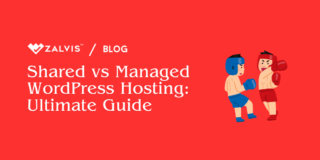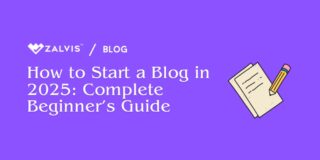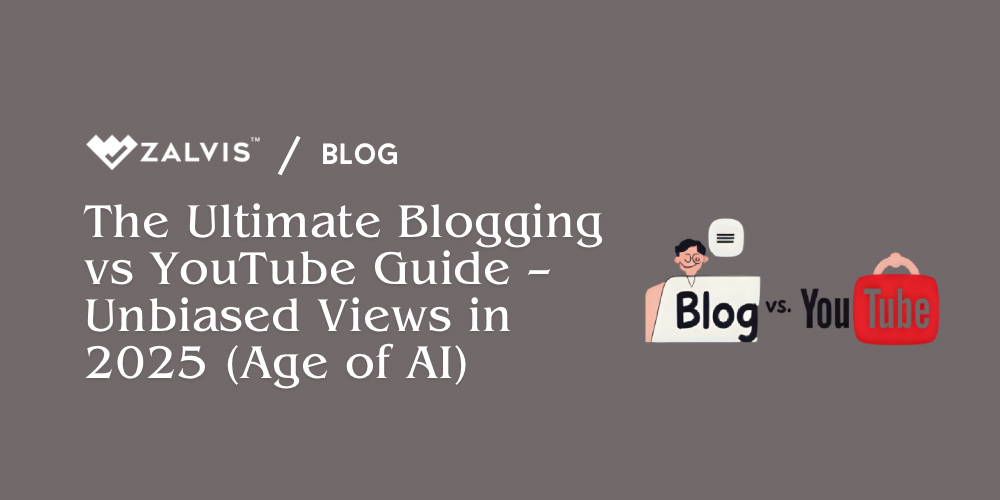You see the curated feeds, the income reports that look like phone numbers, and the dream of a “boss-free life”. You imagine the freedom to work from a laptop anywhere in the world, building a personal legacy one post at a time. It’s a powerful, alluring vision—a career built on your passion, your voice, your terms.
But behind every successful blog, there is a story of doubt, discipline, and late nights spent wondering if anyone is even reading. There is the stark reality of it being “all work-work-work” , the “staggering” amount of information to learn, and the feeling of being overwhelmed that persists at every stage. This is not a journey for the faint of heart.
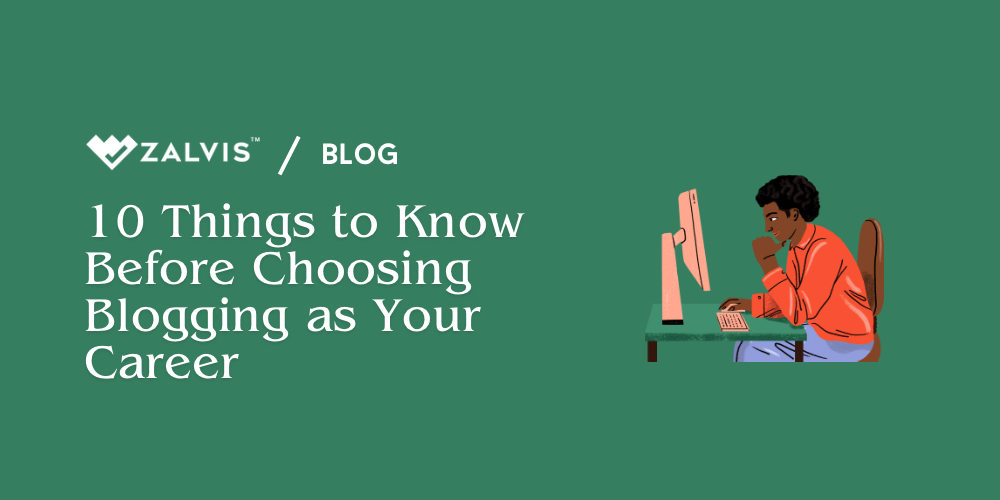
This article is not a list of quick hacks or promises of overnight success. It is a heartfelt, honest guide to the holistic experience of building a blogging career. It’s about preparing your strategy, yes, but more importantly, it’s about preparing your heart for the journey ahead. Before you take the leap, here are ten things you need to know.
10 Things to Know Before Choosing Blogging as your Career
1. It’s a Business of the Heart, But It’s Still a Business

The moment you decide to pursue blogging as a career, you cross an invisible threshold. What was once a passion project, a creative outlet, must now be treated with the seriousness of a profession. This is the fundamental mindset shift that separates a sustainable career from a fleeting hobby. It’s the marriage of your creative soul with the disciplined mind of an entrepreneur.
Your passion is the non-negotiable starting point. It’s the fuel that will keep you going through the long hours when the rewards are few and far between. You need to be so genuinely obsessed with your topic that you find yourself researching it at 1 AM, not because you have to, but because you can’t help it. Without this authentic interest, your content will lack the spark of authority, and you will inevitably burn out when faced with the sheer volume of work required.
But passion alone is not enough. A professional blog requires systems. As one successful blogger who balances a full-time job with his blog explains, the key is to treat it “as a system, not just a task”. This means creating a content pipeline, planning topics weeks or months in advance, and scheduling dedicated time for research, writing, and editing. This systemic approach is what prevents the constant, low-grade panic of wondering what to write next. It builds the discipline that turns passion into productivity.
Furthermore, a business requires investment. Blogger Helene of Helene in Between candidly shares her regret over not investing in her blog sooner, admitting that trying to do everything on her own “cost myself so much time and effort”. This means budgeting for essentials. It starts with choosing the right platform and reliable hosting—using free hosting is consistently described as a “bad idea” that will cost you more in the long run. It extends to professional themes, an email marketing service to build your list from day one , and, crucially, investing in your own education through courses, books, and coaching. This isn’t an expense; it’s an investment in your most valuable asset: your own capability.
Many aspiring creators fear that imposing business structures and systems will stifle their creativity. They see passion and discipline as opposing forces. Yet, the experiences of seasoned bloggers reveal the opposite. The blogger with a content pipeline is the one who avoids the burnout that kills creativity. The blogger who invests in an SEO course is the one who finally gets their passionate writing in front of the people who need to read it. Structure doesn’t kill passion; it protects it. By creating a sturdy vessel of systems and strategy, you give your creative fire the space and oxygen it needs to burn brightly for years to come, rather than being extinguished by the chaos of overwhelm.
2. Your “Why” Will Be Your Only Anchor in a Storm

If you are starting a blog solely to make a lot of money, you will likely fail. The financial rewards are often slow to arrive and unpredictable when they do. During the long, quiet months of building your foundation, when the traffic trickles in and the income is negligible, your paycheck will not be enough to keep you going. Your intrinsic motivation—your “why”—is the only anchor that will hold you steady in the storm of self-doubt and slow progress.
Success, in its truest form, is not merely “the attainment of wealth, position, honors”. As the poet Maya Angelou defined it, “Success is liking yourself, liking what you do, and liking how you do it”. It is a measure of fulfillment. Before you write a single post, you must define what this fulfillment looks like for you. Is your goal to inspire others? To educate them on a specific skill? To simply enjoy a creative hobby that might supplement your income?
Joshua Becker, the creator of the popular blog Becoming Minimalist, is a powerful example of this principle. He loves his full-time day job and has no desire to quit. His blog’s success is not defined by its potential to replace his career but by its ability to coexist with it and fulfill its own unique purpose of helping others live with less. This personal framework is a powerful shield against the poison of comparison and the exhaustion of chasing someone else’s definition of success.
This sense of purpose is also a potent antidote to burnout. For many professionals, like the therapist who blogs about her work, writing becomes a way to process vicarious emotions and reconnect with the core truths that drew them to their field in the first place. This act of reflection and meaning-making is not just for the reader; it is “a quiet antidote to burnout” for the writer.
Often, the most powerful “why” is rooted in service. Harsh Agrawal of ShoutMeLoud had a life-changing realization when he discovered that blogging could be a career. His mission then became to “let others know about blogging and how they can follow their passion and live a boss-free life”. This purpose—to empower others—is a driving force far more resilient than a simple desire for personal gain.
At first glance, your “why” might seem like a private, internal motivator. But a closer look at successful blogs reveals that a clear purpose is the most authentic and powerful branding tool a blogger has. Joshua Becker’s “why” is the content of his blog. Harsh Agrawal’s mission is the brand of his website. The therapist’s process of reflection becomes the valuable, insightful content her readers crave. When your purpose is clear, it infuses your writing with a unique voice , builds deep trust with your audience, and attracts a community that wants to be part of your mission. Your “why” transforms your blog from a simple collection of articles into a platform with a soul.
3. You Will Wear Every Hat, Especially the Ones That Don’t Fit

Let’s be clear: professional blogging is not just about writing. It is entrepreneurship in its purest, most demanding form. In the beginning, you are a startup of one. You are the CEO, the lead writer, the marketing department, the IT helpdesk, the graphic designer, the accountant, and the janitor of your own digital enterprise. You will be forced to wear every single hat, especially the ones that feel awkward and don’t quite fit.
The required skill set is staggering. Beyond strong writing and editing, a professional blogger must be proficient in research, SEO, social media marketing, basic graphic design, networking, and technology. These are not optional add-ons; they are core competencies for building a successful online business.
Certain technical skills are non-negotiable. You must have a foundational understanding of your blogging platform, whether it’s WordPress or another system. You must grasp the fundamentals of Search Engine Optimization (SEO), including how to perform keyword research, understand user intent, optimize your images, and build links. One of the most common pieces of advice for new bloggers is to set up Google Analytics from day one; you cannot grow what you do not measure, and relying on guesswork is a recipe for failure.
You must also become a marketer and a networker. The old adage “if you build it, they will come” is a lie in the crowded digital world. You have to learn how to actively promote your content through social media, build an email list, and forge relationships within your industry. This means connecting with peers, leaving thoughtful comments on other blogs, attending virtual or in-person conferences, and maybe even guesting on podcasts to expand your reach.
Finally, you are the business manager. You need to develop financial literacy to track your income and expenses, manage your budget, and prepare for taxes. You are your own boss, which means you alone are responsible for the discipline and prioritization required to get the work done.
Initially, you will do everything yourself, and it will be hard work. As your blog grows, one of the most important skills you’ll learn is when and how to delegate. This doesn’t mean you can be ignorant of the tasks you outsource. To hire a virtual assistant, a web developer, or an editor effectively, you still need a basic understanding of their work to ensure you’re getting quality and value for your investment.
The sheer number of these responsibilities is often the first shock for new bloggers, leading to a state of constant overwhelm. It feels like a bug in the system, a fundamental flaw in the career path. But in reality, this feeling is a feature. The fact that you cannot possibly do everything is a powerful forcing function for developing the single most critical entrepreneurial skill: ruthless prioritization.
You are forced to constantly ask, “What is the most important thing I can do right now?” Do you spend five hours tweaking your logo’s color (a low-impact task) or five hours learning the SEO strategy that could double your traffic (a high-impact task)? The constant pressure of wearing too many hats is a relentless training ground for making strategic decisions about your most precious and limited resource: your time and energy.
4. The Financial Rollercoaster Is Real, and It Starts with a Steep Drop

Let go of the get-rich-quick fantasy peddled by online gurus. The financial reality of a blogging career is a long, slow, unpredictable climb that begins with what feels like a steep, terrifying drop. It is a marathon of upfront work with little to no pay, and it demands immense patience and adaptability.
The slow start is often the first filter that weeds out those who aren’t truly committed. Seasoned bloggers and industry reports consistently warn that success takes much longer than you think. It is common to earn nothing for the first three to six months, with a year being a more realistic timeframe to see any meaningful income. Many bloggers even report a net loss in their first one or two years, as they invest in hosting, tools, and education before earning a single dollar. Food blogger Jannese Torres, who now earns six figures, was not profitable for the first two years of her journey.
The income spectrum is vast and can be deceptive. You will see income reports from bloggers earning $78,000 in a single month and others who, after a year of hard work, are still in the red by over $1,300. This disparity is not just about luck or effort; it’s a reflection of different niches, strategies, and business models. These high-income reports can be inspiring, but they are the exception, not the rule, and comparing your beginning to someone else’s middle is a recipe for discouragement.
Furthermore, growth is not a smooth, linear progression. Your traffic and income will fluctuate wildly, especially in the early years. One month you might earn $60 and feel like you’ve cracked the code, only to earn $10 the next month and feel like a failure. This unpredictability is normal. The assumption that once you gain traction, your growth will be a steady upward line is a myth that leads to profound disappointment.
Given this volatility, relying on a single source of income is incredibly risky. Every successful long-term blogger understands the critical importance of diversifying their revenue streams. They build a resilient financial foundation by combining several monetization methods, each with its own requirements and potential.
Table 1: A Blogger’s Monetization Toolkit: Strategies, Pros, and Cons
| Income Stream | How It Works | Requirements (Traffic/Trust) | Revenue Potential | Pros | Cons |
|---|---|---|---|---|---|
| Display Advertising | Placing ads on your site through networks like Google AdSense, Mediavine, or SheMedia. You earn money based on ad impressions or clicks. | Low for basic networks (AdSense), but high traffic (50k+ monthly sessions for Mediavine) needed for significant income. | Low to Very High | Passive income once set up; scales with traffic. | Can slow down your site; low-quality ads on new sites pay very little ; can be intrusive for readers. |
| Affiliate Marketing | Promoting other companies’ products/services using unique tracking links. You earn a commission on sales made through your links. | Trust and an engaged audience are more important than raw traffic. | Low to Very High | Can be a significant source of passive income ; allows you to promote products you genuinely love. | Building trust takes time; commissions can be small initially; requires strategic content integration. |
| Sponsored Content | Brands pay you to create content (blog posts, social media) featuring their product. | A significant, engaged audience is usually required before brands will partner with you. | Medium to Very High | Can be very lucrative; builds relationships with brands ; often includes free products. | Can be difficult to secure deals; brands may want creative control ; requires pitching and negotiation skills. |
| Digital Products | Selling your own creations like e-books, online courses, templates, or presets. | An engaged community that trusts your expertise. | High to Very High | You keep most of the profit; full creative control; highly scalable passive income potential. | High upfront effort to create the product; requires marketing and sales skills; no guarantee of sales. |
| Physical Products | Selling branded merchandise like t-shirts, mugs, or a full product line related to your niche. | A strong brand identity and a loyal community that wants to “own a piece of your world”. | Medium to High | Deepens brand connection; diversifies income away from digital-only sources. | Involves logistics like design, sourcing, inventory, and fulfillment; can require significant upfront investment. |
| Services | Offering your skills for hire, such as coaching, consulting, freelance writing, or photography. | Demonstrated expertise in a specific area. The blog acts as a portfolio and lead generator. | Medium to High | Can provide stable, predictable income; leverages skills you already have. | Not passive; directly trades time for money; income is capped by the hours you can work. |
It is easy to look at income reports and feel either a surge of inspiration or a wave of despair. But to view them merely as scorecards is to miss their true value. A deeper analysis reveals that these reports are not just about money; they are strategic blueprints that showcase different business models. A blogger earning 90% of their income from selling their own legal templates is not just a blogger; they are running a product-based business.
A blogger earning 65% from brand partnerships is running a media and advertising business. And a blogger earning most of their income from freelance photography is running a service-based business, using their blog as a powerful marketing tool. The question you must ask is not simply, “How can I make money?” but rather, “What kind of business do I want to build on top of my blog?” This shift in perspective transforms the daunting task of monetization from a random chase for tactics into the deliberate, strategic construction of a viable, long-term enterprise.
5. Your Greatest Enemy and Ally Will Be Your Own Mind

The most grueling and significant battles you will fight as a blogger are not with ever-changing algorithms, ruthless competitors, or negative commenters. They are the battles fought in the quiet, solitary space between your ears. Understanding and preparing for the psychological challenges of Imposter Syndrome and creative burnout is not an optional part of the job description; it is an essential practice for your survival and longevity in this field.
Imposter Syndrome is the pervasive, nagging fear of being discovered as a fraud. It’s the persistent feeling that your successes are a result of luck or timing, not genuine ability, and that it’s only a matter of time before everyone finds out. This feeling is particularly potent for writers and creatives, as their work is subjective, lacking the objective standards of quality found in other professions. It can be paralyzing. Bloggers describe being frozen by it, unable to publish their work for fear of judgment. For many, these feelings are rooted in past experiences and childhoods that sowed seeds of self-doubt.
The path to overcoming it involves several key mindset shifts. First, understand that you are not alone; it is a common experience among high achievers. Second, you don’t have to be the world’s foremost expert. You only need to be one or two steps ahead of the person you are trying to help, sharing what you’ve learned along the way.
Third, be transparent. When you openly share your journey—your struggles, your learnings, your goals—it is very difficult for anyone, including yourself, to label you a fake. Finally, practice reframing your negative self-talk and learn to own your successes. When you receive a compliment, simply say “thank you” instead of deflecting it. Keep a record of positive feedback to read when doubt creeps in.
Creative burnout is the other beast that stalks every blogger. It is a state of profound emotional and physical exhaustion, a disconnection from your creative instincts where your “creative well within has dried up”. It’s triggered by overwork, a lack of rest, the relentless pressure to perform, and the soul-crushing weight of perfectionism. Travel bloggers are especially susceptible, facing the added layers of travel fatigue and the pressure to be constantly creating amazing content in new places. The key to recovery is to accept it rather than fight it. This means taking a real break, slowing down, changing your environment, and reconnecting with activities purely for the joy of them, with no pressure to produce.
These two psychological challenges are not isolated phenomena; they are deeply interconnected, often fueled by the very nature of blogging. The public, metric-driven world of pageviews, follower counts, and income reports creates a fertile ground for comparison. This comparison fuels Imposter Syndrome (“Their blog is growing so much faster, I must not be good enough”).
The feeling of inadequacy then drives a response of overwork and perfectionism (“I have to work harder, post more, and be perfect to prove my worth”). This relentless, self-imposed pressure is a direct path to burnout. It’s a toxic feedback loop. Therefore, the antidote is not just to manage burnout when it arrives but to proactively dismantle the Imposter Syndrome that causes it. This is done by consciously defining your own metrics for success, focusing on your unique journey, and prioritizing the cultivation of a genuine community over the empty pursuit of vanity metrics.
6. Consistency Is More Important Than Perfection
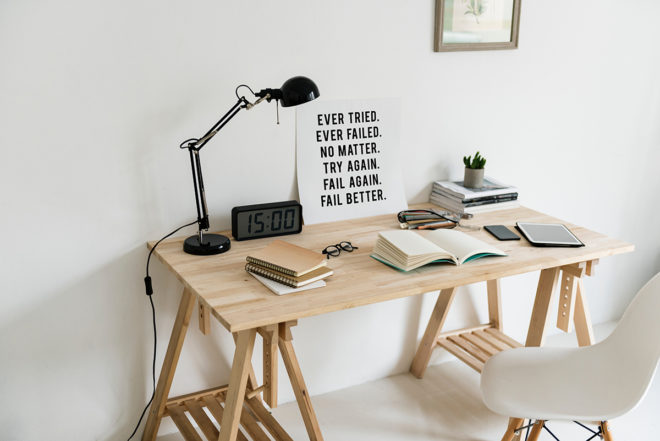
In the world of blogging, perfection is a mirage. It is a shimmering, unattainable ideal that will lead you into a desert of inaction and creative paralysis. The pursuit of the “perfect” blog post—the one with the flawless prose, the impeccable research, and the ideal images—is a trap. A good post that you publish today is infinitely more valuable than a theoretically perfect post that lives forever in your drafts folder.
Perfectionism is one of the most common and powerful blockers for new and experienced bloggers alike. It manifests as “constantly tweaking and overanalyzing content instead of just publishing”. This fear of imperfection can be so strong that it prevents you from ever getting started. The most practical advice from seasoned bloggers is often the simplest: “just get your blog out there”. You have to accept that the first version of your blog design, your first post, and your first digital product will likely be cringe-worthy when you look back on them in a few years. That is not a sign of failure; it is a sign that you have grown.
This does not mean you should sacrifice quality for speed. The goal is not to churn out a high volume of mediocre content. The key is to find the right balance, which is best described as prioritizing consistency over frequency and quality over quantity. As Joshua Becker of Becoming Minimalist observed, many of the most successful blogs do not post every single day. They have established a reliable rhythm that their readers can count on. Publishing one high-value, well-researched article every week is far more effective than publishing five rushed, superficial posts in the same period.
The practical application of this principle lies in the systems you build. A structured content pipeline, as discussed earlier, removes the pressure and panic that fuel perfectionism. When you know what you’re going to write about next week and the week after, you can approach each piece with more intention and less anxiety, making it easier to hit “publish” and move on to the next.
However, the concept of consistency runs deeper than a simple publishing schedule. A blogger who posts every Tuesday but whose tone is erratic, whose topic focus wanders, and who ignores comments from their readers is not truly being consistent. True, holistic consistency is about reliability. It’s about maintaining a consistent voice so your readers know who you are. It’s about consistently showing up for your audience by replying to comments and engaging in conversations. It’s about consistently delivering on the value proposition of your niche. This deeper consistency is what builds trust, and trust is the bedrock upon which a loyal, lasting community is built.
7. Finding Your Niche Is an Act of Professional and Personal Honesty
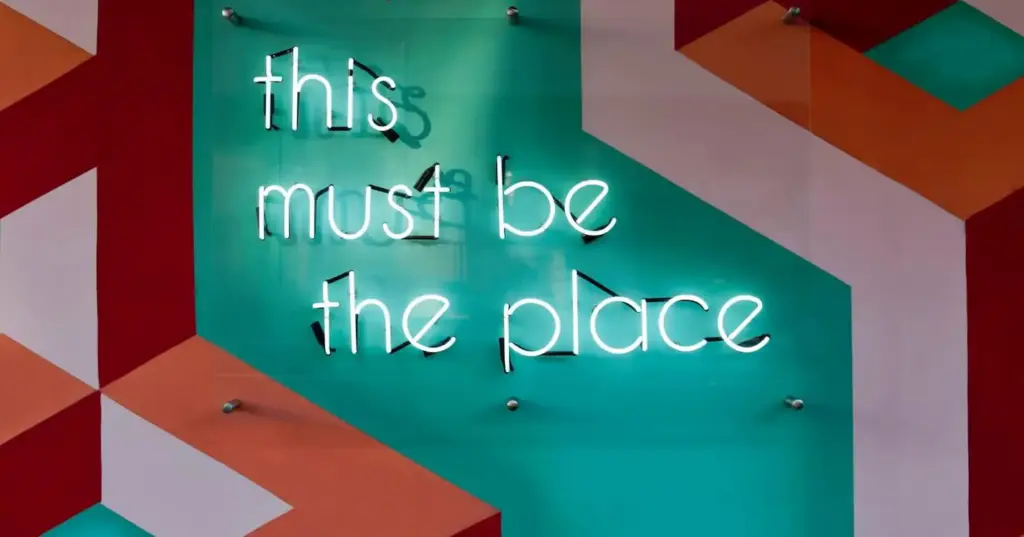
Choosing your niche is arguably the single most important strategic decision you will make in your blogging career. It is the foundation upon which your entire business will be built. Many aspiring bloggers get this wrong. They either chase what they perceive to be profitable trends, or they fear competition and search for a completely untapped market. The reality is that a strong niche is not about finding a topic with no competition; it’s about finding the unique, honest intersection of what you love, what you know, what an audience needs, and what they are willing to pay for.
The process begins with a series of honest questions. First, what are you genuinely passionate about? You must choose a topic that you are obsessed with, something you would happily research and write about for years without getting bored. This passion will shine through in your writing and sustain you through the difficult early days. Second, what are you knowledgeable about? You don’t need a PhD, but you need enough experience or expertise to provide real value. Third, is there an audience that is interested in this topic? You must validate that people are actively searching for information and solutions related to your chosen niche.
Finally, is the audience willing and able to spend money? As one blogger bluntly puts it, you don’t want to “blog to a broke audience”. You must research the market to see if there is proof of profitability. Are there competitors successfully selling products, courses, or services? The presence of competition is not a red flag; it is a green light, signaling that a market exists and that people are willing to pay for solutions.
Once you have a broad topic, the key is to “niche down.” Be specific. “Weight Loss” is a vast, hyper-competitive ocean. “Weight Loss for women in their 40s who want to lose the last 10 pounds” is a targeted, defensible island where you can become the undisputed, trusted expert. This specificity makes it easier to connect with your ideal reader and build authority.While a niche is often thought of as simply the topic you write about, its strategic importance is far greater.
A well-defined niche becomes the ultimate decision-making filter for your entire business. It dictates not only your content but also your monetization strategy (“What products would my specific audience buy?”). It informs your marketing channels (“Where does my audience hang out online?”). It shapes your brand voice (“How do I speak in a way that resonates with this particular group of people?”). It clarifies which collaborations to accept and which to decline. When you are faced with a dozen different opportunities or directions, your niche provides the clarity to say “no” to the distractions and “yes” to the things that truly align with your mission.
8. You’re Not Building an Audience; You’re Cultivating a Community

In the early days of blogging, it’s easy to become obsessed with traffic. You refresh your analytics, watching the pageviews tick up, seeing each new visitor as a victory. But traffic is a vanity metric. It can be fleeting and superficial. The long-term success, resilience, and value of your blog will depend not on the number of passive visitors you attract, but on the strength of the relationships you build with a core group of engaged readers. You are not just building an audience; you are cultivating a community.
The goal is to shift your readers from passive consumers of content to active participants in a conversation. A community is a space where your followers can engage with you and, just as importantly, with each other. It’s what transforms your blog from a monologue into a dynamic, living hub.
Fostering this interaction requires intention and specific strategies. First, you must explicitly invite it. End your blog posts with specific, thought-provoking questions rather than a generic “what do you think?”. Second, write in a conversational tone. Use personal language like “I,” “you,” and “we,” and tell stories that create a human connection. Third, create dedicated spaces for your community to gather, such as a private Facebook Group, a Slack channel, or a forum on your website. These spaces empower members to start their own conversations and build relationships with one another.
Most importantly, you must be present. Reply to comments on your blog and social media. Participate in the discussions happening in your community group. When your readers feel seen and heard, their loyalty deepens. Another powerful technique is to put your readers in the spotlight. Run challenges, feature guest posts from community members, or create posts that highlight the best comments and successes from your audience. This gives them a powerful sense of ownership and recognition.
This shift from broadcasting to community-building can feel like a loss of control. A traditional blog is a top-down model where the blogger controls the entire narrative. A true community is more decentralized. You create spaces where you are not the center of every conversation. You invite guest posters who may have different perspectives. You allow the community’s feedback and needs to guide your content strategy. This requires relinquishing some measure of control.
But in doing so, you gain something far more valuable and enduring: genuine influence. When a community feels a sense of ownership and agency, its bond with the brand becomes incredibly strong. This decentralized, passionate group makes your brand more resilient, more valuable, and more meaningful than anything you could have built alone.
9. Your Boundaries Will Define Your Longevity

A blogging career has no off-switch. There is always another post to write, another email to answer, another social media platform to update, another strategy to learn. In this endless sea of tasks, your ability to set and enforce firm boundaries is not just a nice-to-have skill for work-life balance; it is the single greatest predictor of your long-term survival in this field. Without boundaries, you will inevitably sacrifice your health, your relationships, and the very passion that ignited your journey in the first place.
The danger of this 24/7 work culture is real and pervasive. Bloggers who juggle their site with a full-time job describe being in a “constant state of writing, brainstorming, reacting, outlining,” leading to a state of being “ALWAYS exhausted”. The line between work and personal life blurs until it disappears completely. This is a direct path to burnout.
You must proactively build walls to protect your time and your well-being. This means establishing clear rules for yourself. Perhaps, like Joshua Becker, you do your writing early in the morning before your family wakes and only check your blog at designated times during the day. It means learning to take actual, disconnected days off and developing the crucial skill of saying “no” to collaborations, requests, and commitments that stretch you too thin.
For many bloggers, particularly those in the lifestyle, parenting, or personal development spaces, the boundaries must also be ethical. The rise of “mommy blogging” has highlighted the complex and sensitive nature of sharing your family’s life online. The greatest threat to a child’s online privacy, one critic argues, can come from their own parents. Bloggers have a profound responsibility to consider the future impact of their words.
How will a child feel at 16 reading about their toddler tantrums or potty-training struggles? Using anonymity or pseudonyms, obtaining consent from older children, and refusing to share humiliating or deeply personal information are critical ethical considerations. There is a fine line between authentic sharing and the commodification of your family’s life for clicks and cash, and crossing it can have severe consequences.
Boundaries are often framed as a defensive act—a wall you build to keep work out. But their true purpose is far more profound. A blogger without boundaries has no social life, feels resentful toward their work, and is perpetually exhausted. An exhausted, resentful person with no new life experiences has nothing interesting or valuable to write about. Boundaries are a creative necessity.
By saying “no” to more work, you are actively saying “yes” to family, to friends, to hobbies, to rest, and to the spontaneous experiences that make life rich. This “unproductive” time is what refills your creative well. Boundaries are not about shutting the world out; they are about intentionally letting life in, so that you have something of true value to give back to the world through your blog.
10. The Journey Is the Destination (But a Map Helps)
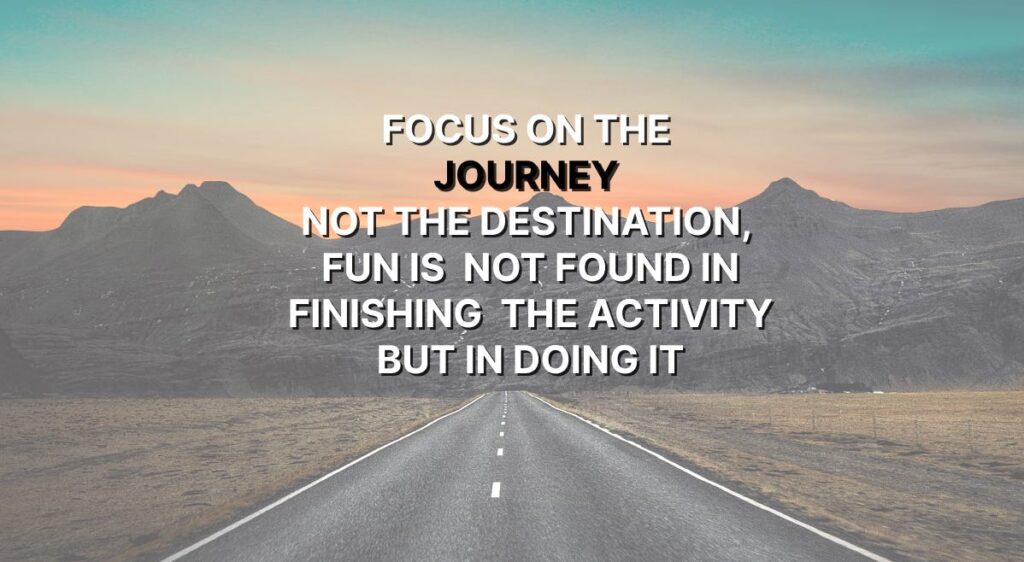
If you are looking for a career with a clear, predictable endpoint, blogging is not for you. There is no final summit to be conquered, no moment where you can declare, “I have arrived.” A career in blogging is a continuous, dynamic journey of learning, adapting, failing, and evolving. The process itself is the destination, and embracing this truth is key to finding fulfillment in the work.
You will fail. Many of today’s most successful bloggers have stories of early attempts that fizzled out. Helene of Helene in Between shares that she tried and failed at full-time blogging once, forcing her back to a traditional job before she eventually succeeded. That failure wasn’t the end; it was a crucial lesson that taught her the importance of having a clear plan and goal.
The learning will never, ever stop. The digital landscape is in a state of constant flux. SEO best practices, social media algorithms, and monetization strategies that are effective today may be obsolete tomorrow. A core trait of any successful blogger is a deep-seated curiosity and a willingness to be a lifelong learner.
You must also give yourself permission to evolve. The blogger you are on day one will not be the blogger you are in year five. Your interests will shift. Your skills will deepen. Your business model will change. As entrepreneur Jannese Torres advises, you must “give ourselves permission to evolve as business owners”. This evolution is not a sign of inconsistency; it is a sign of growth.
Despite the immense challenges, the harsh truths, and the psychological gauntlet, the potential rewards of this career are profound. It offers the possibility of financial independence, a life of creative fulfillment, a flexible lifestyle designed on your own terms, and the incredible opportunity to build a thriving community around something you truly love.
This article has served as your map. It has shown you the terrain—the steep financial drops, the psychological mountains you will have to climb, and the strategic foundations you must lay. It is a map of a challenging, demanding, and often solitary landscape. But it is also a map that leads to a place of deep personal and professional fulfillment. The journey is now yours to take. You are not alone. And the world is waiting to hear your story.
If you enjoyed this article, then you’ll love Zalvis's WordPress Hosting platform. Turbocharge your website and get 24/7 support from our veteran team. Our world-class hosting infrastructure focuses on auto-scaling, performance, and security. Let us show you the Zalvis difference! Check out our plans.
